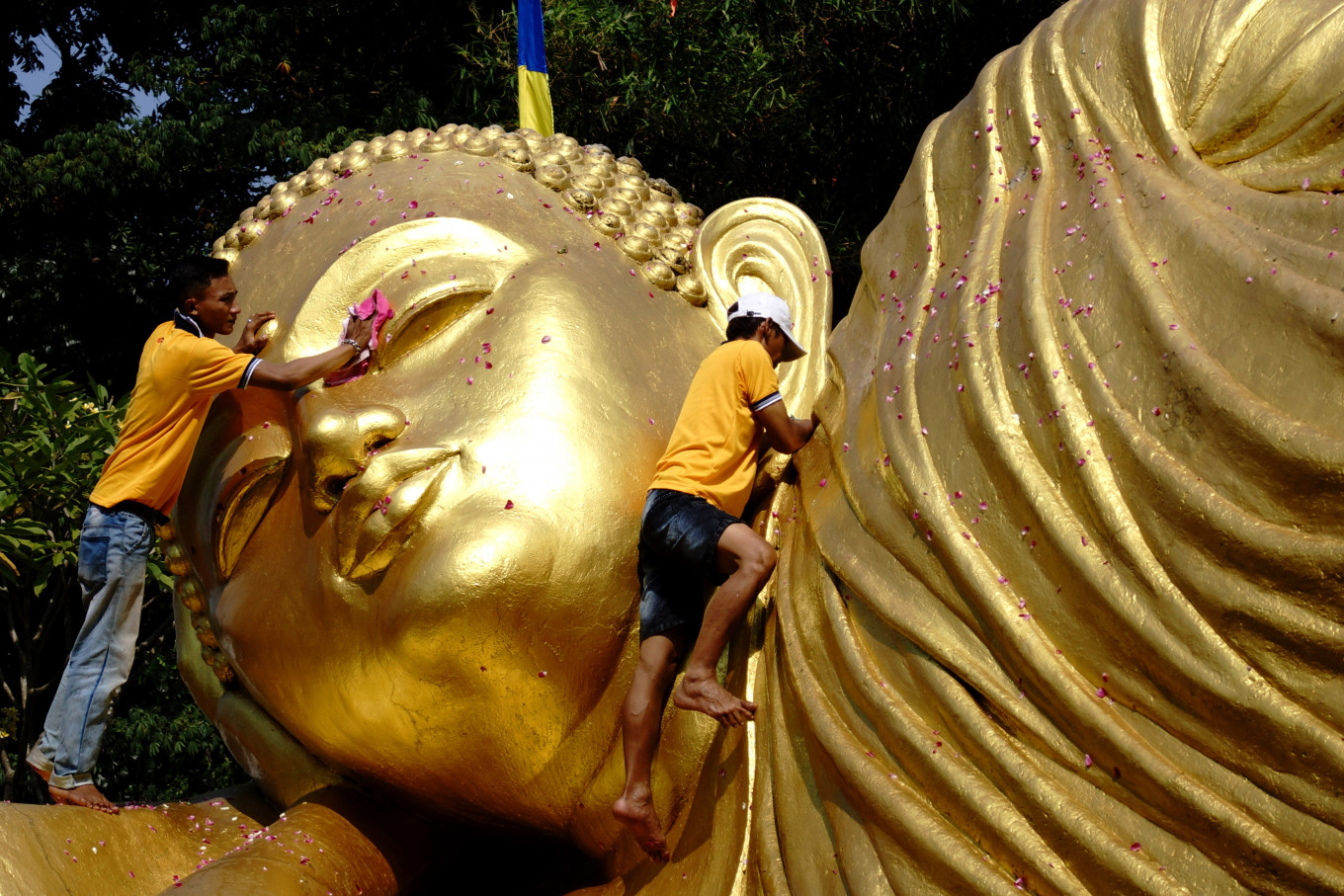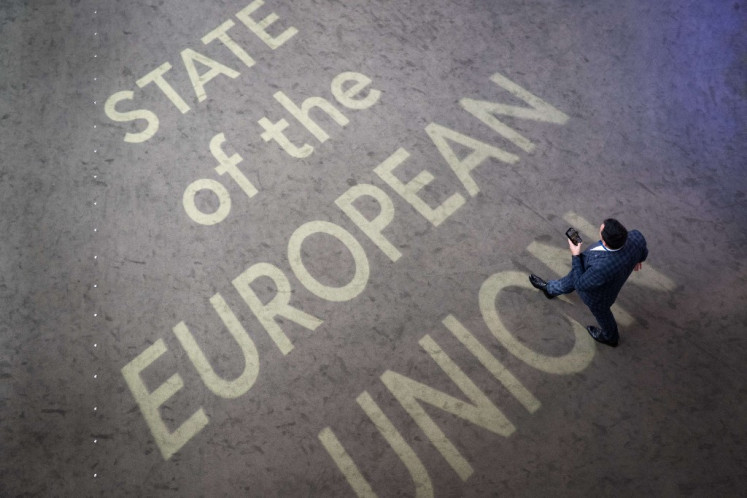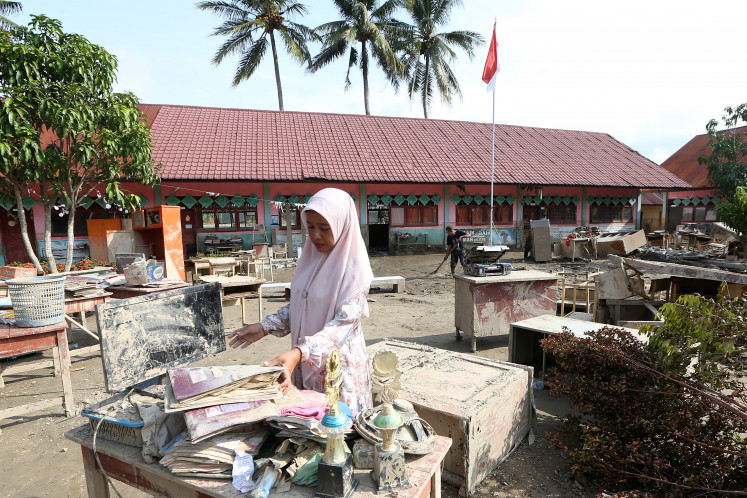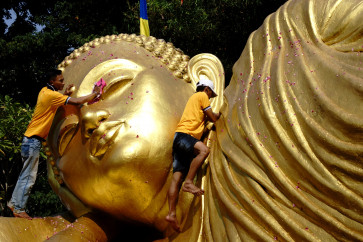Popular Reads
Top Results
Can't find what you're looking for?
View all search resultsPopular Reads
Top Results
Can't find what you're looking for?
View all search resultsEarth faces a 'polycrisis': One Buddha is not enough
The multiple crises on multiple fronts we face today requires more than just prayer: All people across the globe need to come together in a well-being economy, where human and ecological well-being are at the heart of development.
Change text size
Gift Premium Articles
to Anyone
 Workers clean a Buddha statue on May 15, 2024, at the Maha Vihara Mojopahit Bejijong complex in Trowulan, Mojokerto, East Java. Measuring 22 meters long, 6 m wide and 4.5 m tall, the statue must be cleaned ahead of Waisak, which celebrates the Buddha’s birth, enlightenment and death. (Antara/Syaiful Arif)
Workers clean a Buddha statue on May 15, 2024, at the Maha Vihara Mojopahit Bejijong complex in Trowulan, Mojokerto, East Java. Measuring 22 meters long, 6 m wide and 4.5 m tall, the statue must be cleaned ahead of Waisak, which celebrates the Buddha’s birth, enlightenment and death. (Antara/Syaiful Arif)
"May all beings be happy.” This is perhaps the most well-known Buddhist prayer in Indonesia. It aligns with the core of the Buddha’s teaching on happiness: “I teach suffering and the end of suffering.” (Samyutta Nikāya 22.86). But in the face of today’s many problems, how far does this prayer respond to the challenges of our time?
In the past two decades, the gap between the richest individuals in Indonesia and the rest of the population has grown faster than ever. The combined wealth of the country’s 50 richest people equals that of 50 million of the nation’s poorest (Center of Economic and Law Studies/Celios, 2024).
Low education levels exacerbate this inequality. Only 10.2 percent of the population aged 15 and over have completed higher education (Statistics Indonesia/BPS, 2024). Economic disparity and lack of access to education are just glimpses of the systemic, multidimensional suffering surrounding us today, commonly referred to as a “polycrisis”.
Zen master and peace activist Thich Nhat Hanh once said, “We have to look deeply to see that the well-being of one person is the well-being of all, and the suffering of one person is the suffering of all.” This idea aligns with meteorologist Edward Lorenz’s “butterfly effect”, reminding us that we are not isolated beings. In a complex cosmic system, we are all interconnected and interdependent.
The hope for all beings to be happy should not be mere ritual. The world, Indonesia included, is on the brink of immense suffering from the climate crisis and environmental destruction. If left unaddressed, by 2050 Indonesia could endure heat waves that last 8,000 percent longer, face depletion of fish stocks leading to losses of up to Rp 66 trillion (US$3.6 billion) and suffer coastal flooding causing Rp 632 trillion in infrastructure damage (G20 Climate Risk Atlas). These crises will disproportionately affect the poor and marginalized. In such a scenario, the prayer for universal happiness becomes an empty wish.
Thai Buddhist scholar Sulak Sivaraksa criticized spiritual escapism: “Buddhism is not concerned just with private destiny, but with the lives and consciousness of all beings,” he said. “Any attempt to understand Buddhism apart from its social dimension is fundamentally a mistake.”
This perspective embodies the spirit of Engaged Buddhism: a Buddhist movement that actively confronts social and environmental suffering. The concept is not new. For thousands of years, the Buddhist tradition has revered the Bodhisattva, a noble being who postpones personal spiritual liberation to help others be free from suffering.


















